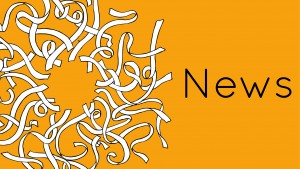 After two years of closely observing the social behaviour of a group of rhesus macaque monkeys, scientists have found that their social skills and networks appear to be highly heritable.
After two years of closely observing the social behaviour of a group of rhesus macaque monkeys, scientists have found that their social skills and networks appear to be highly heritable.
The Duke University study analysed the social network maps of the 90 monkeys in the community (the monkey equivalent of a Facebook friend map) along with their genetics and 75 years’ worth of family tree data. This data is available because these monkeys are descended from a group released from India in 1938, although they now live in a natural setting (albeit with many researchers watching them) on an island off Puerto Rico.
The web-like networks that the researchers created allowed them to look at measures such as ‘betweenness’ (the shortest path between individuals) and an individual’s ‘eigenvector’ (a measure showing the individual’s friends-of-friends network); the larger the eigenvector, the more popular the monkey. The monkeys with low eigenvectors “are sort of the dorks” according to Lauren Brent, the leader of the study.
When these networks were analysed in relation to family trees, many of these measures were highly heritable, meaning they run in families. This social behaviour evolved because it was advantageous to the rhesus monkeys’ ancestors. As Lauren Brent said, “Natural selection appears to be favoring pro-social behavior.”
When genetic samples were analysed, the researchers found that variability in genes responsible for making or transporting serotonin (a neurotransmitter important in regulating mood in humans) was most closely associated with differences in grooming. Although genes don’t directly determine social status, social skills and temperament (both of which seem to have a genetic basis) do.
The researchers will continue studying this group of monkeys, and hope that whole-genome sequencing will help determine which genes cause specific social behaviours. This would give an insight into the inherited aspect of social relations, yielding findings that could be transferable to human social interactions.
“Genetic origins of social networks in rhesus macaques,” Lauren J. N. Brent, Sarah R. Heilbronner, Julie E. Horvath, Janis Gonzalez-Martinez, Angelina Ruiz-Lambides, Athy G. Robinson, J.H. Pate Skene & Michael Platt. Nature Scientific Reports, 9 January 2013.